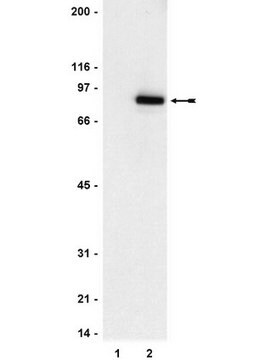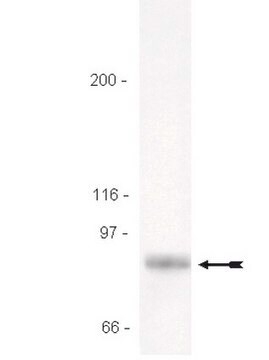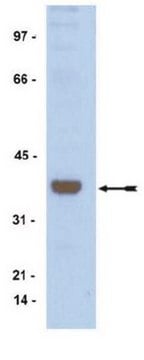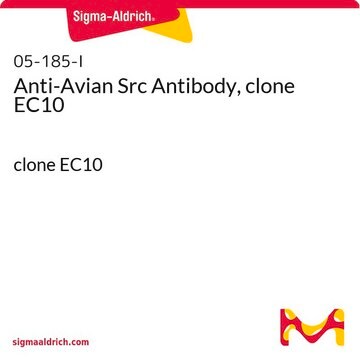05-1078
Anti-STAT3 Antibody, clone 18F7.1
clone 18F7.1, from mouse
Synonym(s):
Acute-phase response factor
DNA-binding protein APRF
signal transducer and activator of transcription 3
signal transducer and activator of transcription 3
(acute-phase response factor)
About This Item
WB
western blot: suitable
Recommended Products
biological source
mouse
Quality Level
antibody form
purified immunoglobulin
antibody product type
primary antibodies
clone
18F7.1, monoclonal
species reactivity
mouse, human
technique(s)
immunocytochemistry: suitable
western blot: suitable
isotype
IgG1κ
NCBI accession no.
UniProt accession no.
shipped in
wet ice
target post-translational modification
unmodified
Gene Information
human ... STAT3(6774)
mouse ... Stat3(20848)
General description
Immunogen
Application
Epigenetics & Nuclear Function
Transcription Factors
Quality
Western Blot Analysis: 0.5 µg/mL of this antibody detected STAT3 in 10 µg of HeLa cell lysate.
Target description
Linkage
Physical form
Storage and Stability
Analysis Note
HeLa cell lysate
Other Notes
Disclaimer
Not finding the right product?
Try our Product Selector Tool.
recommended
Storage Class Code
12 - Non Combustible Liquids
WGK
WGK 1
Flash Point(F)
Not applicable
Flash Point(C)
Not applicable
Certificates of Analysis (COA)
Search for Certificates of Analysis (COA) by entering the products Lot/Batch Number. Lot and Batch Numbers can be found on a product’s label following the words ‘Lot’ or ‘Batch’.
Already Own This Product?
Find documentation for the products that you have recently purchased in the Document Library.
Our team of scientists has experience in all areas of research including Life Science, Material Science, Chemical Synthesis, Chromatography, Analytical and many others.
Contact Technical Service








